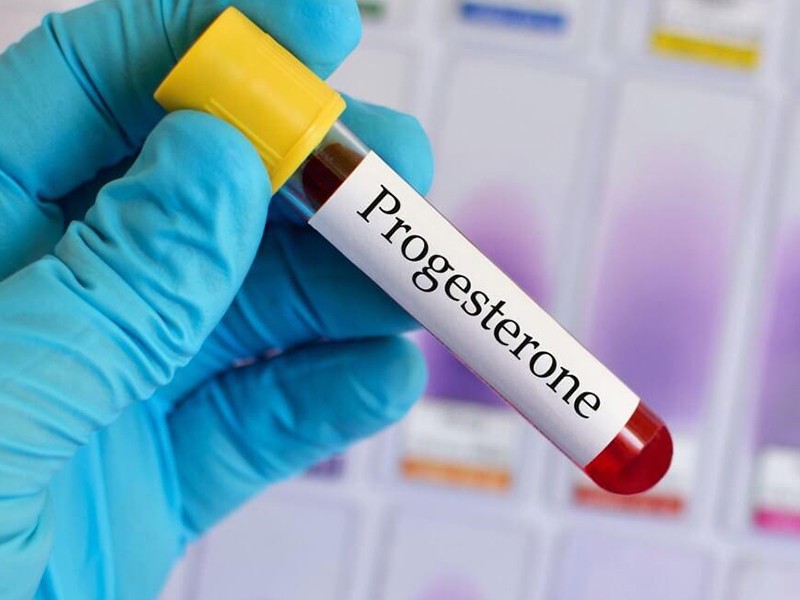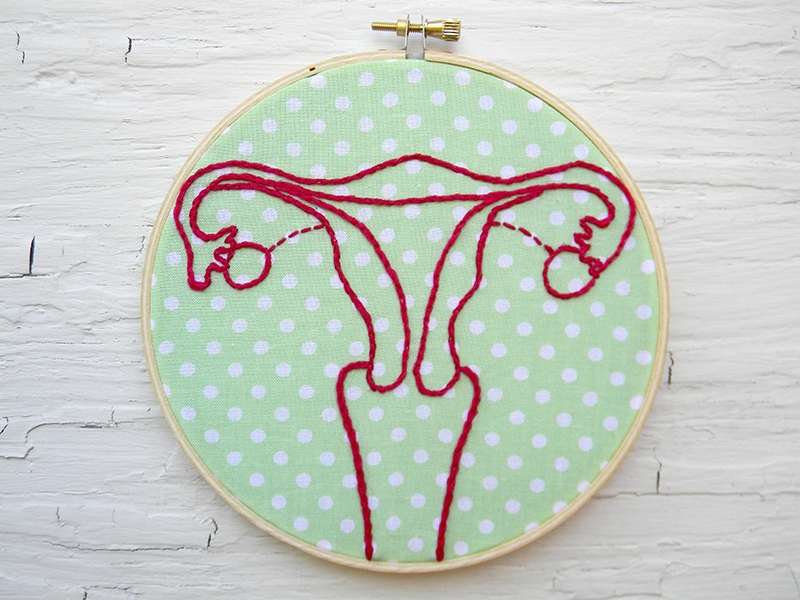Progesterone and its role in conception

Female reproductive function depends on several factors, including genital health and hormonal status. Quite often, the body’s natural balance of hormones is disturbed and it affects fertility as result.
An imbalance in hormones causes problems such as:
- weight fluctuations;
- menstrual irregularities;
- lack of ovulation;
- emotional instability.
All of these points, both individually and in combination, can lead to infertility.
Progesterone is among the most important hormones. Lack or excess of this hormone significantly complicates the process of natural conception and further development / bearing of the fetus. It will be possible to regulate the balance of progesterone for conceiving a child with the help of the IVF protocol under the supervision of a reproductive specialist and a gynecologist.
Progesterone is a hormone of the steroid group of progestogens, which is involved in the synthesis of other sex hormones of endogenous etiology, corticosteroids. This is one of the most significant participants in the ovulation cycle, the functions of which have been studied in sufficient volume.
Progesterone and IVF injection
If pregnancy occurs naturally, then the woman does not even think about hormonal balance. If some difficulties arise, so the hormonal analysis of progesterone levels is one of the first to be checked.
The adrenal glands and the corpus luteum (appears in the ovaries during post ovulation) are responsible for the synthesis of progesterone. The function of the hormone includes stimulating the growth of the secretory activity of the endometrium, vascularization (the formation of
blood vessels). These processes are preparatory for the lining of the uterus, which is going to receive the fertilized egg.
Progesterone affects the condition of the endometrium. Measurement of the hormone level is carried out both before the start of drug therapy and on the day before the ovulatory dose of hCG. If the indicators are less than 3.4 nmol / L, then the chances of pregnancy are extremely small. In such a situation, you should take your time and stabilize the level of the hormone.
Main functions:
- The “pregnancy hormone” is important for the reproductive system. Progesterone prepares the organism for pregnancy and protects the fetus from rejection, and it helps the lactation period begin after the birth of the baby.
- It participates in the regulation of hormonal balance, influencing the formation of corticosteroids, the activity of aldosterone, estrogen.
- Partially synthesized in the central nervous system, progesterone will be the basis for the formation of neurosteroids.
- The hormone increases female fertility, which can help determine the best time to conceive.
When performing in vitro fertilization, it is important to get as many eggs as possible during ovulation. Also, it is necessary to organize the protection of the embryo from rejection by the mother’s body. For this reason, medications that contain progesterone are prescribed for therapeutic purposes.
The rapid growth of the hormone begins when the pregnancy occurs. Of course, the individual characteristics of the organism should not be overlooked. For this reason, only a doctor is able to decipher the results of the progesterone test.
Progesterone deficiency symptoms
There are a number of signs that indicate a hormone deficiency.
Imbalance due to shortage is indicated by:
- heavy and painful flows;
- durable subfebrile temperature;
- flatus;
- dryness of the vaginal walls;
- frequent emotional instability;
- increased hairiness of certain areas on the body;
- hyperactivity of the sebaceous glands.
The reasons for the insufficient production of progesterone are:
- diseases of the organs of the reproductive system;
- general hormonal imbalance;
- the presence of malignant tumors;
- diet violation and insomnia;
- increased lability of the nervous system to stress;
- prolonged use of a certain group of drugs;
- menstrual disorders, prolonged absence of ovulation.
How does progesterone levels rise?
When planning a pregnancy with IVF, the reproductologist studies the progesterone level over time, selects the appropriate and acceptable dose of the drug for a particular case.
There are several drugs aimed at:
- solving a specific problem in case of hormonal failure;
- overall support for ovulation with hCG.
There are general recommendations, adherence to which will help to increase and maintain the amount of progesterone in the blood plasma:
- full 8-hour sleep and keeping the daily regimen;
- vitamin intake (products with vitamins E and C, group B);
- eating zinc-rich, protein-rich foods.
What effect can you expect from medication to support progesterone levels when planning a pregnancy? During IVF, a sufficient level of steroid hormone ensures ovulation and preparation of the fallopian tubes and uterus for implantation of embryos. Also, restoring balance will significantly improve the quality of life, eliminating the unpleasant symptoms of a decrease or increase of the hormone.
Among the most common drugs for the regulation of progesterone levels is Utrozhestan and its analogues (Lugesterone, Prometrium, Prozhestan) with a similar micronized formula. The actual release form is in the form of soft capsules for pre-oral intake. Also, the vaginal form of injection is possible to support the luteal phase in the first trimester for the implementation of the oocyte donation program, with anovulatory cycles during in vitro fertilization.


